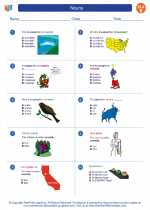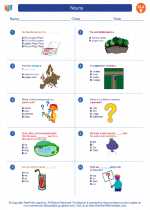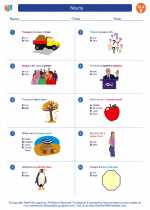Pronoun Study Guide
A pronoun is a word that takes the place of a noun. It is used to avoid repetition of the noun in a sentence. Pronouns can refer to a specific person, thing, or group.
Types of Pronouns:
- Personal Pronouns
- Reflexive Pronouns
- Demonstrative Pronouns
- Interrogative Pronouns
- Indefinite Pronouns
- Possessive Pronouns
- Relative Pronouns
Examples of Pronouns:
Personal Pronouns: I, you, he, she, it, we, they
Reflexive Pronouns: myself, yourself, himself, herself, itself, ourselves, yourselves, themselves
Demonstrative Pronouns: this, that, these, those
Interrogative Pronouns: who, whom, whose, which, what
Indefinite Pronouns: anyone, someone, everybody, nobody, all, both, few, many, several, some, any, none, each, either, neither, one, none, some, most, more, several, both, any, all, few, many
Possessive Pronouns: mine, yours, his, hers, its, ours, theirs
Relative Pronouns: who, whom, whose, which, that
Using Pronouns:
Pronouns can be used to make sentences less repetitive and more concise. They should agree in number, person, and gender with the noun they replace. For example, instead of saying "Mary is a good student. Mary is hardworking. Mary is helpful," you can use pronouns to say "Mary is a good student. She is hardworking and helpful."
Study Tips:
- Practice identifying different types of pronouns in sentences.
- Make sure pronouns agree with the nouns they replace in gender, number, and person.
- Use pronouns to make your writing more concise and avoid repetition.



